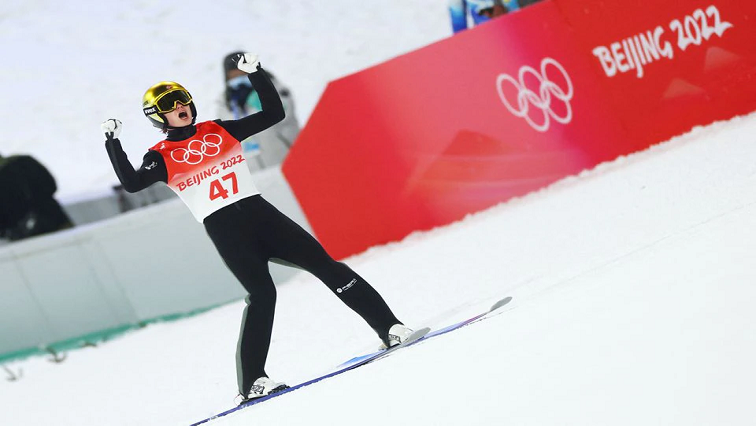The International Olympic Committee (IOC) has heaped praises on the Peoples Republic of China for being “gracious hosts” during the recent Beijing Winter Olympics. The games ended last Sunday, having survived being sullied by unsavory geopolitical wrangling.
For nearly three weeks, the Olympic flame burnt ever so bright, serving as a global magnet for sporting excellence and pursuit of achievable dreams for scores of international athletes from dozens of participating countries.
The prophetic words of the UN Secretary-General Antonio Guterres rang true when he said at the opening of the games on February 4th: “Let the Olympic spirit of peace, mutual respect and understanding shine throughout the Games and beyond.”
The Games motto was “Together for a Shared Future”.
As the Chinese were mopping up following a true spectacle that was the Beijing Olympics, Italians were elated to receive the Olympic baton, Milan and Cortina d’Ampezzo are frantically getting ready to host the 2026 games.
The Beijing Olympics were the first global person-to-person event since the outbreak of the pandemic two years ago. The closing ceremony took place at the National Stadium in Beijing, the first-ever city to have hosted both the Summer and Winter Olympics.
China’s Olympic Organising Committee described Beijing 2022 “as a journey about both physical and human infrastructure – encompassing green construction and reuse of venues”.
Various technologies were also applied for the first time to realize “a carbon-neutral event”. All competition venues were powered with renewable energy, marking a first in Games history, according to the Chinese authorities.
The spectacle gave the world hope that humanity stands on the brink of defeating COVID-19. No wonder the International Olympic Committee described the games as “truly exceptional” during their post-mortem assessment.
Vaccine manufacturing is fast taking root in places such as Africa, where the majority of people are yet to receive their double jabs due to “vaccine apartheid”. To date, only 12 percent of Africans are double jabbed.
Conversely, in the Global North, more than 70 percent of people have received their double jabs. It is in this light that the success of the Beijing Winter Olympics needs to be viewed and reviewed. For, massive odds were stacked against China to host the games. The truth is, in the wake of the pandemic challenges, very few countries in the world would have been able to handle the task of hosting such monumental games.
By the end of the games last Sunday, some 109 medal events had been successfully decided amid an atmosphere of humanness and international solidarity. Eternally fond memories were created, and inter-continental friendships built. Today, the world is a better place, thanks to the role of sport across all societies.
The host nation fielded a 388-member contingent, including 177 athletes. It was China’s largest-ever presence in the Winter Games, and they recorded the country’s best-ever Winter Olympic haul of 15 medals. Norway, the prosperous Scandinavian powerhouse, came out the biggest winner with a total of 37 medals, 16 of which were gold.
These are the kind of feats that enhance social cohesion in any host country, regardless of what sporting event is hosted. South Africa went through a similar positive experience when the country hosted, and triumphed, during the 1995 Rugby World Cup. The same feel-good spirit was experienced by South Africans the following year – in 1996 – when the country hosted and triumphed yet again – in the African Cup of Nations.
Speaking during the closing ceremony of the Beijing Games, IOC President Thomas Bach summed it up as follows: “The Olympic spirit could only shine so brightly because the Chinese people set the stage in such an excellent way – and in a safe way.”
He added: “The Olympic villages were outstanding. The venues – magnificent. The organisation – extraordinary. This unforgettable experience was only possible because of our gracious hosts, the Chinese people.”
There were many athletes who shone and sparkled during games, but none more than China’s 18-year-old Gu Ailing, the Ski prodigy.
She became the first freestyle skier to win three medals in single Games. The teenage sensation no doubt inspired millions of people, particularly the youth, around the world.
Ailing received lots of accolades from both the athletic followers and fellow athletes as well. Some of the congratulatory remarks came from the British freestyler Zoe Atkin, who was quoted as saying: “It’s really great to see and it’s so inspiring. She makes me want to be a better skier myself. I think she’s amazing for the sport.”
The convivial spirit of the Games was perhaps best captured by China’s curling duo Fan Suyuan and Ling Zhi, who after losing to the United States, presented their American counterparts, Vicky Persinger and Chris Plyswith with a set of pin badges that featured Bing Dwen Dwen – the mascot for the Games that has gone viral.
The viewership of the Games was also unparalleled. The IOC’s managing director of television and marketing services, Timo Lumme, said: “About two billion people worldwide tuned in to watch the Olympics”.
And IOC’s Bach added: “The IOC-owned Olympic social media accounts had surpassed 2.7 billion engagements for Beijing 2022. There, I’m not speaking of the many other means and platforms.”
Bach also said during his concluding remarks about Beijing 2022: “What we could learn is that in Olympic movement if we are united, we can be extremely resilient.”
Proof of this was successfully organising Olympics during the pandemic, he pointed out.
Finally Muhammad Asif Noor, secretary-general of the Pakistan-Shangai Cooperation Organisation Friendship Forum, said about the Games: “They could also very much contribute to expanding the global knowledge and better understanding of China’s philosophy and ideas.”


